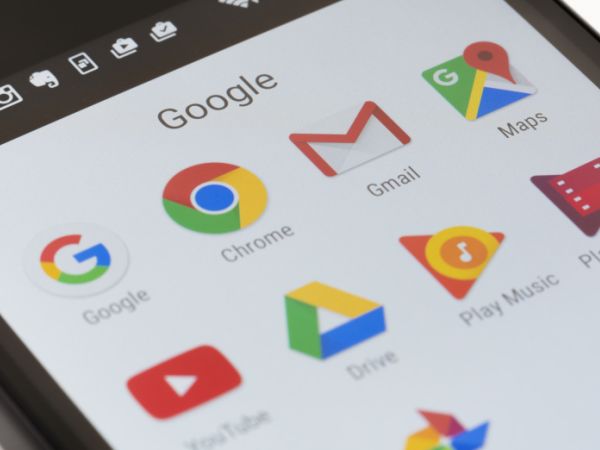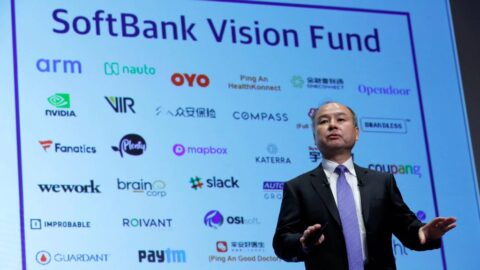Can the company continue to pervade all that it eyes or should Google now focus on a single theme as competitors continue to chip away at the edges?
Google is 21. The age when we firmly caste aside the last trace of teenage and confidently step into adulthood. However, in the case of Google, quite literally founded in an elevator at Stanford, it has created aha moments for as many people as it has fallen foul of, on a wide range of issues, be it the laxity with privacy or the security concerns that comes with its snooping habits.
Of course, a lot has changed since 1998 when Larry Page and Sergey Brin officially launched Google Search. Google products have become an intrinsic part of our everyday life. Google has constantly looked beyond ‘search’ to diversify its core business – be it locating new places (Google Maps), or the way we communicate (Gmail), how we surf the web (Google Chrome), how we shop (Google Shopping), how we consume information (Google News).
It has dictated how we control our home (Nest, Google Hub), have access to entertainment (YouTube) and how we interact with the world (Android and Pixel). It has also invaded the enterprise space – keeping businesses connected through corporate email (G-Suite business), user insights (Google Analytics), and allows people to find and engage with the people, companies and products they seek.
A Googol of Google Controversies
When Brin and Page were thinking of a name for their enterprise, the world Googol came to mind – a word derived the mathematical term for a 1 followed by 100 zeros. Over the past two decades, the company has had quite a few zeros following it in the form of challenges and controversies.
Many of us would recall the censorship issue in China. When Google shut down its Chinese search engine in 2010, it gave up access to an enormous market. Google’s entry into Chinese markets was short-lived, its local search engine launching in 2006 and lasting just four years before Beijing cracked down on what it called a major hack and disputes over search result censorship.
But in August last year, a fresh controversy emerged, when investigative website Intercept reported that the company was working on a secret prototype of a new, censored Chinese search engine, called Project Dragonfly. It is known fact that amid a furor from human rights activists and some Google’s own privacy team, from whom the company had kept it a secret; Google was forced to suspend the project.
If this was an example of the company falling foul of a government, there were more to follow. European authorities fined the company a whopping 1.7 billion USD for antitrust violations just six months ago. And this happens to be the third instance of the EU fining the company since 2017 totaling more than 9.3 billion dollars.
Those That Didn’t Work
If the company kept falling foul of regulators across countries, they also erred with strategy on occasions, none worse than their social networking platform Google Plus that came into being in 2011 as a competitor to Facebook. The idea was borrowed and the implementation was tardy to say the least and the result was a security breach that consigned the product to the digital graveyard. Some may recall that before Google Plus, the company had failed with its Google Buzz, a replica of Twitter.
Right from its inception, Google had based its expansion plans on a simple premise. To pick up some technology trend and simplify it. This was true with the Gmail, which began operations in 2004 by offering accounts for one dollar on Amazon. Then they gave away 100 requests, curtailed it to 50 before removing it completely.
The strategy didn’t change when Google launched business emails. They gave away free mail IDs for each business account, curtailed it to 10 per account and reached a point where even a single email ID was charged. Google for Business waded into territory that was occupied by companies offering e-mail packages and the results were phenomenal.
Then There Were Controversies
The earliest challenge Google faced related to suggestions that it read emails, because the company began serving ads related to content found on personal mails. Of course, Google kept reiterating that the results were algorithmic and neither human nor machine was actually reading emails, save for randomly identifying keywords that could then be used to serve relevant online ads.
Then there was the brouhaha about Google tracking user movements with complaints about Android devices and even the iPhone tracking location using applications that access Bluetooth. Reports suggested that a whopping two billion users of Android devices were affected by the issue that originally came from usage of Google Maps and the Search – both apps requiring location sharing.
The latest in this line came recently when Google was in the eye of a storm over allowing third parties to listen in to recordings of Google Assistant. While other enterprises such as Apple and Amazon were upfront and apologized, Google behaved like a student caught copying in an examination. There were statements but none clear enough on whether snooping will continue or not.
The Future is Right Here
After two decades of playing the same game of taking a business idea, refining it and creating a product with better UI-UX, today Google stands tall in the Internet Technologies firmament, a master of all that it purveys. They own a lion’s share of the search revenues, have a slew of products that business owners, at least the small ones, rave about and are now firmly ensconced even in the smartphone market.
Sundar Pichai, the man who is helming the company’s journey defines the future mission as helping users organize information on mobile. With enough data on its servers, the company is hoping to use its Big Data capabilities to develop artificial intelligence for pushing more relevant ads, creating aha moments for users and generally thriving on closer engagements that generate brand loyalty like never before.
However, there is one challenge. There are others in the market with the same business idea. Amazon is going after voice technology and smart gadgets right up to one’s kitchen and bathroom. Facebook is busy figuring out how it can use its publishing capabilities to render search impotent. Microsoft under Satya Nadella is seeking to be a one-stop solution for enterprises. And Apple is seeking out entertainment to expand usage of its hardware.
For Google to continue its relevance, this 21-year-old may need to stop becoming everything to everyone, focusing instead on a core theme in its business plans.








